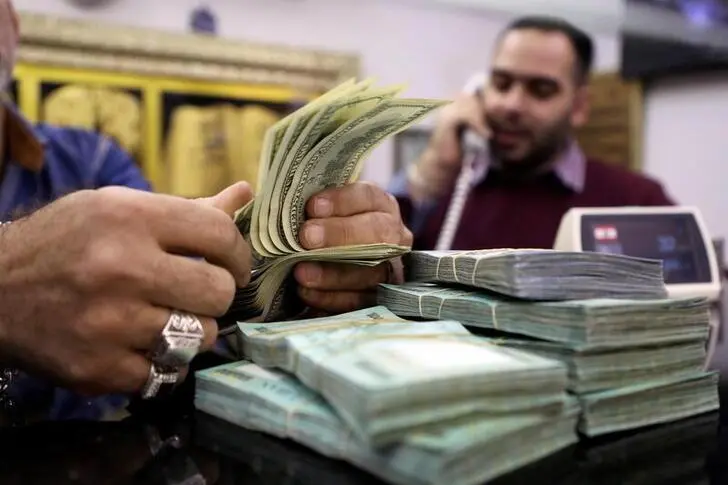PHOTO
BEIRUT - Lebanon's deputy prime minister Saade Chami said Monday that the government's plan to revive an economy crushed by a three-year financial crisis would not be able to pay back all depositors in full.
Chami is the architect behind a recovery roadmap that Lebanon's cabinet passed in May and which includes several measures that are required to unlock relief funding from the International Monetary Fund.
Those $3 billion in funds are meant to address one of the worst financial meltdowns in over a century, with the local Lebanese pound losing more than 95% of its value and over 80% of Lebanon's population now living below the poverty line.
Speaking on local broadcaster LBCI, Chami said the state's plan to plug a $72 billion hole in the financial system would not be able to "save all depositors."
He said that accounts holding more than $100,000 will be returned through a fund financed by the assets of the central bank and commercial banks, without providing further details.
Chami said the government's total foreign currency reserves - including its gold deposits - amount to between $25 billion and $30 billion "at best."
An audit of the central bank's foreign currency position including its gold reserves is one of the requirements set out by the IMF to gain access to $3 billion in relief funds.
Lebanon has made slow progress on the rest of the checklist, recently passing both an amended banking secrecy law and a belated 2022 budget, although observers suspect the IMF has reservations on both.
Parliament still needs to approve a banking resolution framework to address Lebanon's bloated commercial banking sector and a capital controls law.
Chami said he expected that most banks would not face problems in paying back depositors or undergoing a restructuring.
Beyond its financial meltdown, Lebanon is also facing a looming political crisis as President Michel Aoun's term will end in a week with parliamentarians split over a successor.
With the cabinet already operating in a caretaker capacity, observers fear that the government would not carry the constitutional legitimacy to sign a final deal with the IMF.
Chami told LBCI that Lebanon would still be able to submit its progress to the IMF board for review and approval of the relief funds but he was not sure if the final deal with the fund would require the approval of a president.
(Reporting by Maya Gebeily; Editing by Andrea Ricci)




















